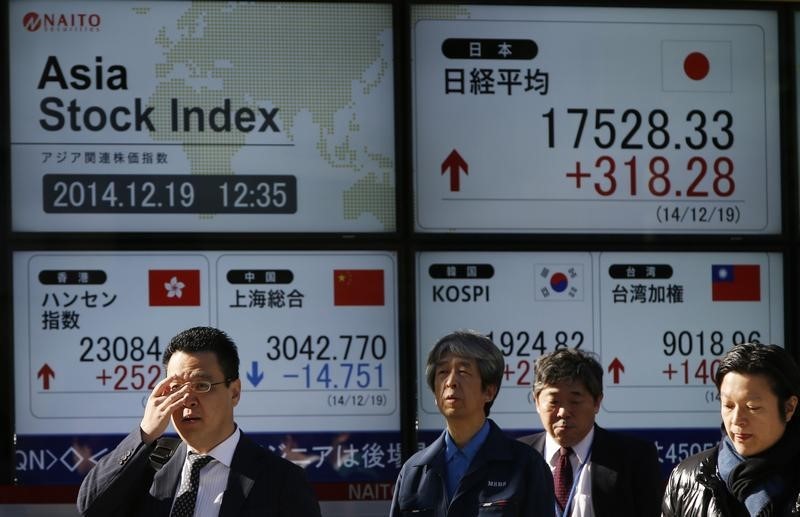© Reuters.
Investing.com — Most Asian stocks retreated on Wednesday as caution kicked in ahead of a testimony by Federal Reserve Chair Jerome Powell, while investors also awaited more stimulus measures in China after an underwhelming rate cut.
Powell is set to later in the day, potentially offering more cues on the path of U.S. interest rates after somewhat last week.
An unexpected rise in U.S. housing activity also pushed up some expectations that the Fed will have enough headroom to maintain a hawkish stance.
Chinese stocks slide as rate cut disappoints
China’s and indexes fell 0.6% and 0.4%, respectively, as a cut in the country’s benchmark (LPR) failed to impress markets.
The People’s Bank of China cut both its one-year and five-year LPR by 10 basis points on Tuesday, disappointing some traders hoping for a bigger cut in the five-year rate, which determines mortgage prices.
But analysts expect Beijing to roll out more stimulus measures in the coming months to help shore up a slowing economic recovery. Still, Chinese markets took little support from this notion, declining steadily ahead of market holidays on Thursday and Friday.
Hong Kong’s index was the worst performer in Asia for the day, down 2% to a two-week low as heavyweight technology stocks sank the most on fears of rising U.S. interest rates.
Alibaba Group (NYSE:) (HK:) sank over 3% even after the firm appointed a new CEO, as it moves towards spinning off and listing its biggest sectors.
Other technology-heavy bourses also retreated, with South Korea’s down 0.6%, while the index shed 0.2%.
Concerns over China spilled over into Australian markets, with the down 0.3%.
Japan among few gainers as BOJ doves prevail
Japan’s index added 0.3%, while the broader rose 0.4%. Both indexes traded close to their highest levels in 33 years, buoyed largely by the prospect of monetary policy remaining accommodative in the country.
The minutes of the Bank of Japan’s April meeting showed that nine out of 10 members of the board had no intention of altering its ultra-loose policy in the near-term, and even the outlier suggested the bank wait before considering a change.
A dovish BOJ has been among the biggest factors behind a Japanese stock rally this year, as monetary conditions in the rest of the globe tightened further. Japan’s economy has also remained fairly resilient despite increased global headwinds.
Read the full article here




